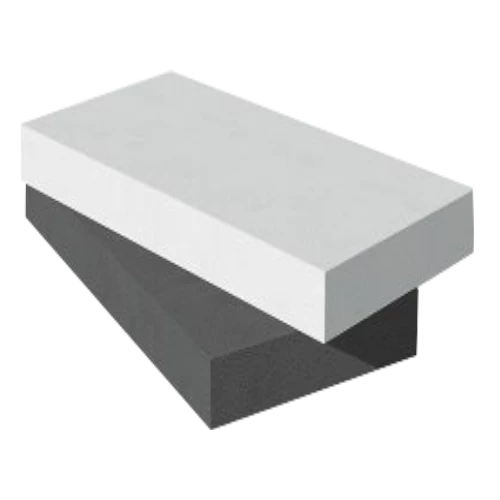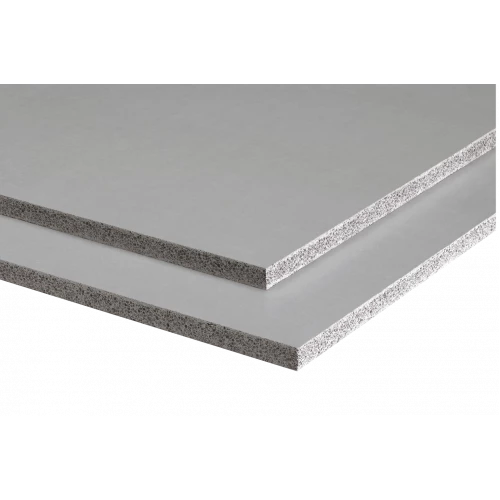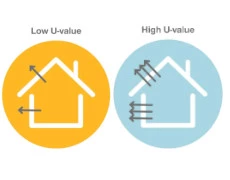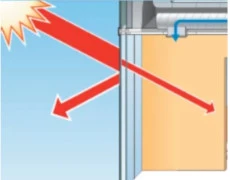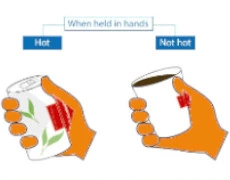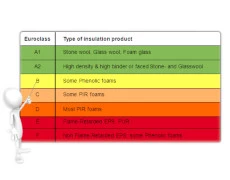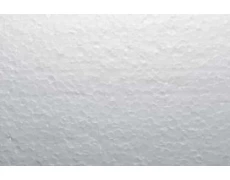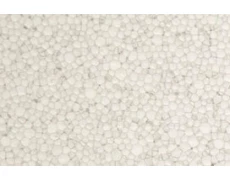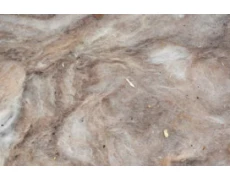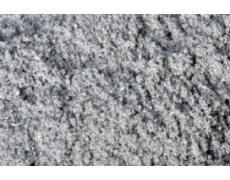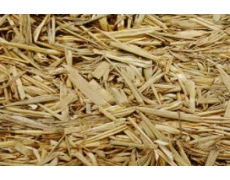
The easiest way to lower gas bills.*
HOW TO REDUCE GAS BILLS IN WINTER?
Insulating our homes has become more important than ever as energy prices reach new heights for homeowners across the UK. Rising energy bills have prompted thousands of homeowners to take steps to improve their property’s energy efficiency. As of 2022 Natural gas prices are skyrocketing. Here in the UK, a lot of people are going to be shocked by the gas bills this winter. We could be seeing the highest gas prices in 14 years. Thankfully there are some easy things you can do about your gas bill. We are going to give you 18 ways to cut your Natural gas bill. We wanted to make this article to help people living in the UK with bringing down the gas bills.
 TABLE OF CONTENTS
TABLE OF CONTENTS
1. REDUCE GAS BILLS BY CLEANING CENTRAL HEATING PIPES
 The water inside the pipes of your central heating system gets dirty over time. If no action is taken, this dirt can start to increase your bills. If you clean your central heating system regularly you’ll keep it running smoothly and efficiently, so you won’t find yourself spending more than you need to on heating your property. If radiators aren’t the same temperature from top to bottom, then it could be that dirty water and sludge have built up in your system. By cleaning central heating pipes you simply increase the efficiency of your system. But how do you know if your system has all of this debris inside it? There are some warning signs to look out for, including: radiators that are cold at the bottom or top, a noisy boiler, radiators that need bleeding frequently or radiators that take a long time to warm up.
The water inside the pipes of your central heating system gets dirty over time. If no action is taken, this dirt can start to increase your bills. If you clean your central heating system regularly you’ll keep it running smoothly and efficiently, so you won’t find yourself spending more than you need to on heating your property. If radiators aren’t the same temperature from top to bottom, then it could be that dirty water and sludge have built up in your system. By cleaning central heating pipes you simply increase the efficiency of your system. But how do you know if your system has all of this debris inside it? There are some warning signs to look out for, including: radiators that are cold at the bottom or top, a noisy boiler, radiators that need bleeding frequently or radiators that take a long time to warm up.
There are a couple of ways that you can clean the sludge out of your heating system. The first is called a powerflush, which is both the name of the method and also a physical device that your heating engineer will use. Alternatively, you can take every radiator off one at a time and flush it yourself.
Cost: £180
Potential savings: 10% a year
Payback (Years): 3
Disadvantages: typical plumbing job.
2. REDUCE GAS BILLS BY INSULATING RADIATOR PIPES
 Pipe insulation is quite an effective way of bringing down your gas level and making your house more comfortable. Pipe insulation consists of a foam tube that covers the exposed pipes between your hot water cylinder and boiler, reducing the amount of heat lost and, therefore, keeping your water hotter for longer. Pipe insulation is really effective on the floorboards where you don’t want the heat to go missing before it gets to radiators, and in loft spaces and in airing cabinets. Pipe insulation also sound proofs, so you will also be less bothered by gurgling in your heating pipes. It is cheap and easy to fit. There are many ready-made plates specially designed to insulate pipes. Pipe insulation is really affordable and easily found at any DIY store such as Srewfix, B&Q or Wickes. You just cut it to size and put it on the pipes and you have an instant result. In just a couple of months you will recoup the cost of the insulation material.
Pipe insulation is quite an effective way of bringing down your gas level and making your house more comfortable. Pipe insulation consists of a foam tube that covers the exposed pipes between your hot water cylinder and boiler, reducing the amount of heat lost and, therefore, keeping your water hotter for longer. Pipe insulation is really effective on the floorboards where you don’t want the heat to go missing before it gets to radiators, and in loft spaces and in airing cabinets. Pipe insulation also sound proofs, so you will also be less bothered by gurgling in your heating pipes. It is cheap and easy to fit. There are many ready-made plates specially designed to insulate pipes. Pipe insulation is really affordable and easily found at any DIY store such as Srewfix, B&Q or Wickes. You just cut it to size and put it on the pipes and you have an instant result. In just a couple of months you will recoup the cost of the insulation material.
Cost: £48( £0.64ex VAT per lm)
Potential savings: £35 a year.
Payback (Years): 1
Disadvantages: removing carpet, floorboards.
3. REDUCE GAS BILLS BY INSTALLING NEW SHOWER HEAD
 A showerhead is a solution that you can install in your shower to dramatically reduce the amount of hot water you use. Newer models can reduce the volume of water used by half. So reducing the amount of water used means you are also reducing the amount of water to be reheated and therefore saving on energy. Buying a more efficient shower head can save you as much as £18 per person a year on gas bills, plus an additional amount if you have a water metre. The average shower in the UK lasts 8 minutes and in that time an estimated 60 litres of hot water is used. Perhaps, you should consider taking shorter showers. Yes, we hear what you are thinking. But the shower can use a lot of hot water. Using less hot water, means you have to heat less, so you save on your heating bills. Keeping your showert time to just 4 minutes could save you £40 pounds a year. Due to these benefits around 85% of homes now have new shower heads installed. Water saving shower heads are incredibly simple to fit in existing shower units. If you are replacing a shower head on a flexible hose, then you simply need to unscrew the existing shower head and screw on the low flow one in its place. To replace a fixed showerhead, it is exactly the same principle except you might need a spanner to remove the old showerhead and tighten the new low flow one into place.
A showerhead is a solution that you can install in your shower to dramatically reduce the amount of hot water you use. Newer models can reduce the volume of water used by half. So reducing the amount of water used means you are also reducing the amount of water to be reheated and therefore saving on energy. Buying a more efficient shower head can save you as much as £18 per person a year on gas bills, plus an additional amount if you have a water metre. The average shower in the UK lasts 8 minutes and in that time an estimated 60 litres of hot water is used. Perhaps, you should consider taking shorter showers. Yes, we hear what you are thinking. But the shower can use a lot of hot water. Using less hot water, means you have to heat less, so you save on your heating bills. Keeping your showert time to just 4 minutes could save you £40 pounds a year. Due to these benefits around 85% of homes now have new shower heads installed. Water saving shower heads are incredibly simple to fit in existing shower units. If you are replacing a shower head on a flexible hose, then you simply need to unscrew the existing shower head and screw on the low flow one in its place. To replace a fixed showerhead, it is exactly the same principle except you might need a spanner to remove the old showerhead and tighten the new low flow one into place.
Cost: £34-£45
Potential savings: £18 a year.
Payback (Years): 2/3
Disadvantages: must be properly cared for in order to last a long time.
4. REDUCE GAS BILLS BY INSTALLING RADIATOR REFLECTOR

If you’re trying to save money on your heating bills, radiator reflector panels are an attractive low-cost option. Radiator reflectors work on a very simple principle. Your radiator radiates heat both into the room, and into the wall behind it. That heat can simply be lost to the outside, especially if you have thin single skin walls. Fixed behind your radiators, they reflect heat from the radiator back into the room, instead of letting the heat out through an external wall. They can produce the most benefit when installed on uninsulated solid walls. Panels are easy to apply and come as a metallised polyester and polyethylene foam roll. Please note, you only need to put reflector panels behind radiators on external walls. Party walls between properties normally don’t need reflectors either, unless your next door neighbours don’t heat the house, or there is no one living there.
If you have 5 radiators on exposed walls in your property, you could be looking at savings of about £20 a year, that is payback in under 2 years. Even in a well insulated property, you would save around £5 a year paying back in 6-8 years.
Cost: £ 8
Potential savings: £20 a year.
Payback (Years): 2
Disadvantages: requires the removal of the radiator
5. REDUCE GAS BILLS BY SETTING RIGHT TEMPERATURE
 The major difference can be made by changing your thermostat down a degree. This wouldn’t be for everyone because some people like their temperatures at the same level. If you are not one of them, try a degree less. If you set it for 20 at the moment, try 19, if you are set for 21 try 20 and so on. You may not make that jump straight away by one degree that is quite a noticeable jump for a lot of people. Maybe you should try going down by only half a degree and next week or two weeks after try another half of that. You will probably notice that you are just very easy to that half a degree in two steps and you might find that that is comfortable room temperature from you from then on and would be a huge saving to your bill. These changes won’t cost you any money and will make no difference to the temperature that you feel physically in the room but will make a massive saving and the time that your boiler stays on will be reduced.
The major difference can be made by changing your thermostat down a degree. This wouldn’t be for everyone because some people like their temperatures at the same level. If you are not one of them, try a degree less. If you set it for 20 at the moment, try 19, if you are set for 21 try 20 and so on. You may not make that jump straight away by one degree that is quite a noticeable jump for a lot of people. Maybe you should try going down by only half a degree and next week or two weeks after try another half of that. You will probably notice that you are just very easy to that half a degree in two steps and you might find that that is comfortable room temperature from you from then on and would be a huge saving to your bill. These changes won’t cost you any money and will make no difference to the temperature that you feel physically in the room but will make a massive saving and the time that your boiler stays on will be reduced.
One of the quickest and easiest ways to save money is to turn down the flow temperature on the boiler. Set it to 1-2 degrees lower than you normally would while you are out or you are asleep and you will see savings on your bill. But before you do that, talk to your family about your family habits. Please note different boilers have different ways of doing that. Some have a button to turn it down and others have a dial. The ideal is to run the boiler as low as you can. The lower the flow temperature, the less gas you burn and the more comfortable the house would be. It is heavily dependent on how many radiators you have and how big they are. Turning your thermostat down by one degree is going to save you £80 a year.
TIP
Have your room temperature as low as you can so that your house is still warm and you are still comfortable and that way it will save you money on gas bills and really won't affect you that much.
Cost: Free
Potential savings: £80 a year.
Payback (Years): instant
Disadvantages: may require a change in your habits
6. REDUCE GAS BILLS BY GETTING BOILER INSPECTED
 Have your boiler inspected to make sure that it is running efficiently or switch to a more energy-efficient model. In fact, professional boiler servicing gets your boiler working smarter, not harder. On the other hand, by installing a high efficiency boiler can save you significantly on your home heating cost.
Have your boiler inspected to make sure that it is running efficiently or switch to a more energy-efficient model. In fact, professional boiler servicing gets your boiler working smarter, not harder. On the other hand, by installing a high efficiency boiler can save you significantly on your home heating cost.
To put this into perspective, 10 boilers that are serviced annually have needed a repair in their first six years. This doubles to around six in 10 boilers if the boiler is only serviced every two to five years. A one-off service should cost anywhere from £160 to £180 for a gas boiler. A good boiler service should last at least 30 minutes.
Cost: £180-£3000
Potential savings: £110 a year.
Payback (Years): 7-8
Disadvantages: in most cases, it requires the replacement of the boiler.
7. REDUCE GAS BILLS BY CONTROLLING YOUR USAGE
S ave money and maximise your home comfort with the smart thermostat heating control app. Installing an app lets you track your consumption with accurate and real time information. Keeping a watchful eye on your consumption levels can help you decide if and when you have to change the way you use energy.
ave money and maximise your home comfort with the smart thermostat heating control app. Installing an app lets you track your consumption with accurate and real time information. Keeping a watchful eye on your consumption levels can help you decide if and when you have to change the way you use energy.
Cost: Free
Potential savings: £30 a year.
Payback (Years): 1
Disadvantages: time consuming.
8. REDUCE GAS BILLS BY UPGRADING YOUR RADIATOR VALVES

Another way you can save on your heating bills is to upgrade your normal lock shield valves on your radiators to thermostatic radiators valves. They work by shutting down the individual radiator when the room gets hot enough and that helps you reduce your gas bills at quite a low expense.
Cost: £38
Potential savings: £18 a year.
Payback (Years): 2
Disadvantages: requires installation by a plumber.
9. REDUCE GAS BILLS BY UPGRADING RADIATORS

The amount of heat they can put out is heavily reliant on the size of the radiator if they are single radiators or double radiators. If you were to upgrade your radiators to make them longer or bigger and upgrade single panels to double panels or even fit more radiators per room, you would be able to turn your boiler temperature down further which should allow you to use less gas. Steel, cast iron, and mirrored radiators are among the most expensive and will cost upwards of £700 for large designer models. On the other hand, a basic single panel central heating radiator will start at around £30 to £60 without the installation. The prices charged for installing an additional radiator by plumbers will vary according to the amount of pipework required and the complexity of the job. As of 2022 the cost of replacing a radiator with a like for like replacement will vary depending on the size.
Costs range from:
£260 for a small radiator replacement.
£330 for a medium radiator replacement.
£390 for a large radiator replacement.
Cost: £330
Potential savings: £48 a year.
Payback (Years): 6/7
Disadvantages: requires installation by a plumber.
10. REDUCE GAS BILLS BY CLEANING MAGNETIC FILTER
 Another tip for keeping your central heating system as efficient as possible is to have your magnetic filter cleaned once a year. The reason you would do that is that as the rust tries to build up in your system. It will get pumped past this magnet in your filter and the magnet will hold on to it and prevent the rust from blocking up parts of your system or even damaging the system parts. It is easy to do, you can ask your plumber when he services your boiler and it is really a very good way of preventing your system from losing efficiency from blocking up. Your radiators should be always warm all over. If you have 10 radiators, all 10 radiators should heat about the same. If you find that one half of the house is suddenly much cooler than the rest or one radiator is much cooler than the rest, then you probably have an issue with the rust build up in that section.
Another tip for keeping your central heating system as efficient as possible is to have your magnetic filter cleaned once a year. The reason you would do that is that as the rust tries to build up in your system. It will get pumped past this magnet in your filter and the magnet will hold on to it and prevent the rust from blocking up parts of your system or even damaging the system parts. It is easy to do, you can ask your plumber when he services your boiler and it is really a very good way of preventing your system from losing efficiency from blocking up. Your radiators should be always warm all over. If you have 10 radiators, all 10 radiators should heat about the same. If you find that one half of the house is suddenly much cooler than the rest or one radiator is much cooler than the rest, then you probably have an issue with the rust build up in that section.
Cost: £50
Potential savings: £26 a year.
Payback (Years): <2
Disadvantages: requires regular service.
11. REDUCE GAS BILLS BY USING WINDOW CURTAINS
 You won’t be surprised that most of your heat goes out of your windows. They release the most heat because they are the least insulated part of your house and during the day they do a wonderful job of letting light in but at night they are just a big heat escape, letting all the heat out of the glass panes. But what can you do to fix this? Most of us, if not all of us, have curtains or blinds that can be shot. So at night, when it is dark, shut the blinds and this blind or curtain when it is shut fully it will act as an extra barrier of insulation between the window pane and your heated room, meaning that you will actually use less gas.
You won’t be surprised that most of your heat goes out of your windows. They release the most heat because they are the least insulated part of your house and during the day they do a wonderful job of letting light in but at night they are just a big heat escape, letting all the heat out of the glass panes. But what can you do to fix this? Most of us, if not all of us, have curtains or blinds that can be shot. So at night, when it is dark, shut the blinds and this blind or curtain when it is shut fully it will act as an extra barrier of insulation between the window pane and your heated room, meaning that you will actually use less gas.
On the days where the sun is out, open up the curtains and let the sun shine in and warm the place. Also make sure to check for any leaks or drafts around windows and doors. Always make sure you don’t let your curtains cover your radiators.
In fact, shutting window blinds is the quickest way just to save a few pennies, however doing something like this in your routine will create your new habits.
Cost: Free
Potential savings: £16 a year.
Payback (Years): <1
Disadvantages: closing daily routine
12. REDUCE GAS BILLS BY THICKER CARPET/UNDERLAY
 There are some other things you can do to reduce heat loss in your house. That is by insulating your floors. You can put a thicker underlay and thicker carpets and that would really help lower your gas levels. In fact, with thicker carpet, you can save around 2 to 3% of your heating costs. Those savings might look small but it's a significant difference in the overall heating bill. Research shows that you could save up to £50 per year from fitting a thicker carpet & underlay. This equals an amazing £500 in 10 years- all from just upgrading to a carpet & underlay. When shopping for carpet, always pay attention to the thermal overall grade- or tog- of the product. This is the universal grade for insulation properties in clothes, bedding and floors. Consider your tog rating as a guide to how well your floor will insulate heat and help warm your home. By ensuring you’re using a higher tog rating, you can expect to improve insulation on your floors. Underlay, which can be used below carpets, is made up of millions of tiny fibres which are natural insulators, trapping the cold air that travels up through the floor to ensure it doesn't make its way into the home. As a result, the home becomes naturally warmer. This means less reliance on energy-intensive heat sources.To choose the most energy efficient layering, you should use the following tog ratings for carpets - 2.5 tog or more.
There are some other things you can do to reduce heat loss in your house. That is by insulating your floors. You can put a thicker underlay and thicker carpets and that would really help lower your gas levels. In fact, with thicker carpet, you can save around 2 to 3% of your heating costs. Those savings might look small but it's a significant difference in the overall heating bill. Research shows that you could save up to £50 per year from fitting a thicker carpet & underlay. This equals an amazing £500 in 10 years- all from just upgrading to a carpet & underlay. When shopping for carpet, always pay attention to the thermal overall grade- or tog- of the product. This is the universal grade for insulation properties in clothes, bedding and floors. Consider your tog rating as a guide to how well your floor will insulate heat and help warm your home. By ensuring you’re using a higher tog rating, you can expect to improve insulation on your floors. Underlay, which can be used below carpets, is made up of millions of tiny fibres which are natural insulators, trapping the cold air that travels up through the floor to ensure it doesn't make its way into the home. As a result, the home becomes naturally warmer. This means less reliance on energy-intensive heat sources.To choose the most energy efficient layering, you should use the following tog ratings for carpets - 2.5 tog or more.
Cost: £15-30 per m2
Potential savings: £50 a year.
Payback (Years): 10
Disadvantages: can be expensive to buy.
13. REDUCE GAS BILLS BY DRYING CLOTHES IN OTHER AREAS
 Yes, don’t dry any clothes on your radiators. Use only areas or heated areas but don’t put clothes on the radiators as this is the worst thing you can do. When you hang wet clothes on a radiator, the water evaporates out of the fabric and absorbs the heat. Moreover, you're really just blocking the radiator from heating the room. Your radiator, even without a thermostatic valve, is trying to reach a certain temperature. Yet you're plugging the upstream heat of your whole system. Your boiler then has to struggle to heat the room using a radiator whose convection cycle is blocked.
Yes, don’t dry any clothes on your radiators. Use only areas or heated areas but don’t put clothes on the radiators as this is the worst thing you can do. When you hang wet clothes on a radiator, the water evaporates out of the fabric and absorbs the heat. Moreover, you're really just blocking the radiator from heating the room. Your radiator, even without a thermostatic valve, is trying to reach a certain temperature. Yet you're plugging the upstream heat of your whole system. Your boiler then has to struggle to heat the room using a radiator whose convection cycle is blocked.
Cost: Free
Potential savings: £45 a year.
Payback (Years): <1
Disadvantages: you may need extra space
14. REDUCE GAS BILLS BY CLOSING DOORS
 If you have individual controls, you'll want to keep your bedroom door closed so that the temperature in that space is better regulated per the setting for that room. Close the doors in the rooms because that is the way the radiators work. They convert the heat around the room. Closed room means that they are only heating the room they are designed for. With a two storey house the tendency is for the heat to rise as hot air is less dense. This will lead to upstairs being warmer than down. Assuming that the house has no draught issues, close all of the doors and the rooms will all get warmer as the hall tends to be the coolest room. Close only the doors upstairs and keep the bedrooms at the desired temperature. It warms up a little faster if you keep doors closed (convection is a little increased), anyway if your corridor is about the same temp. (+/-2°C) as bedrooms are, there's no difference. If you don't want to close your door manually, consider purchasing and installing door closers.
If you have individual controls, you'll want to keep your bedroom door closed so that the temperature in that space is better regulated per the setting for that room. Close the doors in the rooms because that is the way the radiators work. They convert the heat around the room. Closed room means that they are only heating the room they are designed for. With a two storey house the tendency is for the heat to rise as hot air is less dense. This will lead to upstairs being warmer than down. Assuming that the house has no draught issues, close all of the doors and the rooms will all get warmer as the hall tends to be the coolest room. Close only the doors upstairs and keep the bedrooms at the desired temperature. It warms up a little faster if you keep doors closed (convection is a little increased), anyway if your corridor is about the same temp. (+/-2°C) as bedrooms are, there's no difference. If you don't want to close your door manually, consider purchasing and installing door closers.
Cost: Free
Potential savings: £10 a year.
Payback (Years): <1
Disadvantages: closing the door regularly.
15. REDUCE GAS BILLS BY MOVING FURNITURE
 Most importantly move furniture away from radiators. If it is next to radiators the furniture will absorb the heat into the back of it, meaning they are not heating the room effectively. So try to keep a small air gap between the sofa and radiator behind it. Once you move furniture off the radiator make sure you give the radiators a good dusting. Dust is the same as clothes or furniture against it. They absorb the heat out of your radiator, wasting it and heating dust.
Most importantly move furniture away from radiators. If it is next to radiators the furniture will absorb the heat into the back of it, meaning they are not heating the room effectively. So try to keep a small air gap between the sofa and radiator behind it. Once you move furniture off the radiator make sure you give the radiators a good dusting. Dust is the same as clothes or furniture against it. They absorb the heat out of your radiator, wasting it and heating dust.
Cost: Free
Potential savings: £16 a year.
Payback (Years): <1
Disadvantages: may limit the use of the room.
16. REDUCE GAS BILLS BY DRINKING HOT TEA
 Instead of heating the whole room try heating your body by drinking hot tea or hot coffee to help regulate your temperature better. Only boiling the amount of water you need in the kettle will save you 8 pounds a year.
Instead of heating the whole room try heating your body by drinking hot tea or hot coffee to help regulate your temperature better. Only boiling the amount of water you need in the kettle will save you 8 pounds a year.
Cost: Free
Potential savings: £25 a year.
Payback (Years): <1
Disadvantages: the cost of heating the kettle may exceed the cost of savings.
17. REDUCE GAS BILLS BY USING DRAFT EXCLUDER
 Put the draft excluder in front of the door. You will get 1.5 celsius change in the front door. That is just after 10 minutes. If you don’t want to pay for a new draft excluder, make your own excluder. Filling all the draught gaps could save you £32 pounds a year.
Put the draft excluder in front of the door. You will get 1.5 celsius change in the front door. That is just after 10 minutes. If you don’t want to pay for a new draft excluder, make your own excluder. Filling all the draught gaps could save you £32 pounds a year.
Cost: £36
Potential savings: £32 a year.
Payback (Years): <2
Disadvantages: requires regular displacement when opening the door.
18. REDUCE GAS BILLS BY HOLIDAY
 If none of the methods mentioned above help, then maybe you should consider going abroad, to a warm country such as Spain. Yes, if you work remotely, all you need is an internet connection. Right? When you leave your home for the winter, you can lower the controller to 10 degrees. This is absolutely enough to keep your property free from moisture.Home swapping is another option to consider. You will be paying for their bills and vice versa. Finding a swap is as simple as putting up a profile online and contacting people until you find someone who matches. And the best bit about it, it’s almost free, meaning you have more money to spend. Swapping homes is a fantastic way to travel and save money at the same time. HomeExchange.com is by far the biggest swapping site, with about 450,000 claimed listings, of which 315,000 are thought to belong to people currently interested in taking a holiday.
If none of the methods mentioned above help, then maybe you should consider going abroad, to a warm country such as Spain. Yes, if you work remotely, all you need is an internet connection. Right? When you leave your home for the winter, you can lower the controller to 10 degrees. This is absolutely enough to keep your property free from moisture.Home swapping is another option to consider. You will be paying for their bills and vice versa. Finding a swap is as simple as putting up a profile online and contacting people until you find someone who matches. And the best bit about it, it’s almost free, meaning you have more money to spend. Swapping homes is a fantastic way to travel and save money at the same time. HomeExchange.com is by far the biggest swapping site, with about 450,000 claimed listings, of which 315,000 are thought to belong to people currently interested in taking a holiday.
Cost: £110
Potential savings: £360 a year.
Payback (Years): <1
Disadvantages: time-consuming, it costs £110 a year to be a member.
*All the information provided in the content published on Insulationgo blog is for informational and educational purposes only. Insulationgo LTD makes every effort to ensure the accuracy and timeliness of the content, but we do not assume any responsibility for any errors or omissions.
The information presented on this blog should not be considered as professional advice or a substitute for consulting relevant experts. Before making any purchase decisions or taking action based on the information presented here, it is strongly recommended to contact the product manufacturer directly to verify the details and ensure its suitability for your specific needs.
By using this blog, you acknowledge and agree that Insulationgo LTD shall not be held liable for any damages, losses, or inconveniences arising from the use or reliance on the information provided herein. This limitation of liability applies to all users of the blog, including but not limited to visitors, readers, and subscribers.











